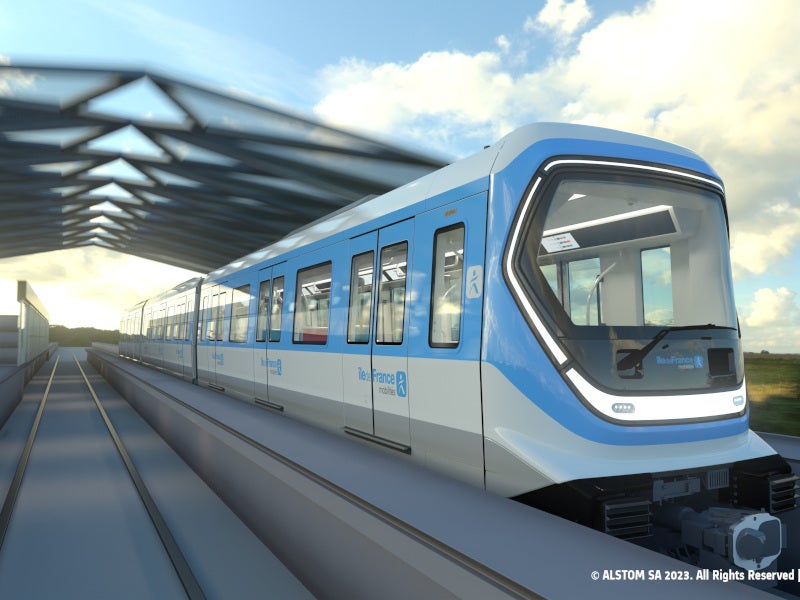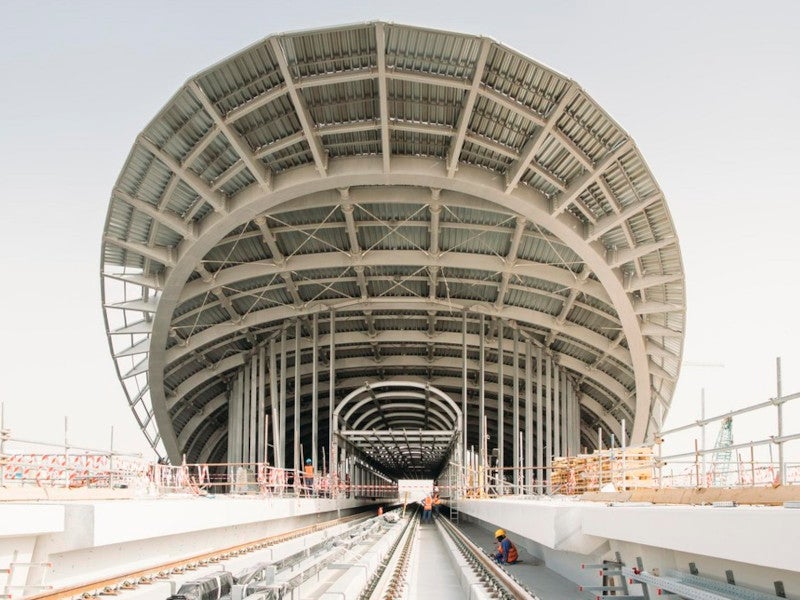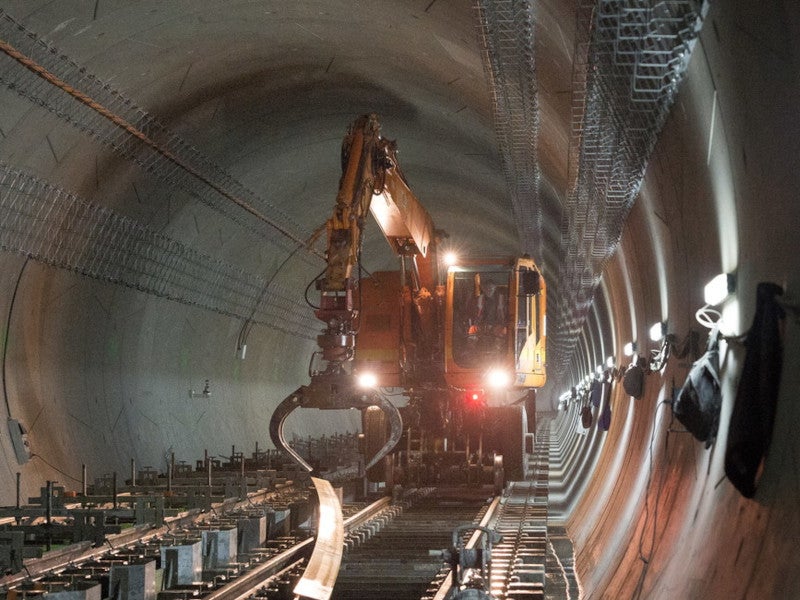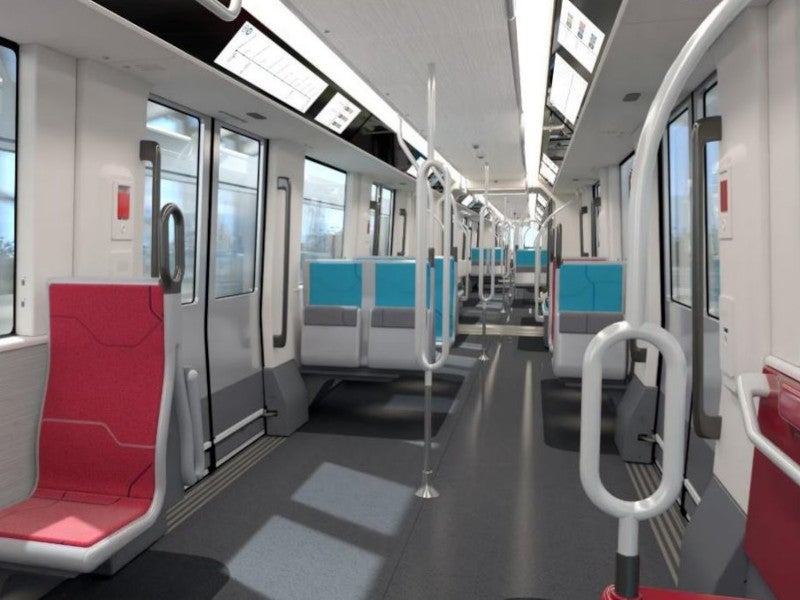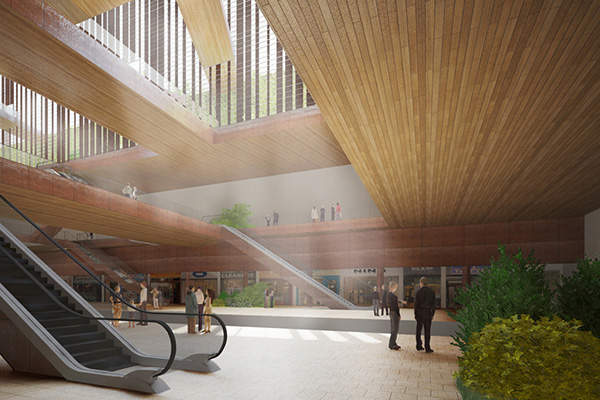Grand Paris Express is the largest transportation project being developed in Paris, France. It is being developed by Societe du Grand Paris (SGP) and will serve three million residents per day.
The project involves the expansion of Line 14 and the construction of four new automatic Lines. Construction of the new lines of Grand Paris Express began in June 2015 and is being carried out in phases up to 2030.
The new metro development is being undertaken with an estimated investment of €36.1bn (approximately $47.7bn), 30% of which is being financed by the French Government through SGP and the remaining 70% by the local authorities through earmarked taxes, subsidies and loans.
The project is expected to transform travel within Paris by providing quick and comfortable transportation access to city attractions and amenities. It is expected to reduce 14.2 million tonnes of carbon dioxide emissions by 2050.
Grand Paris Express lines and station details
Grand Paris Express project includes the extension of the existing Line 14 of the Paris Metro towards the north and south and the construction of four new Lines 15, 16, 17 and 18.
All the stations of the Grand Paris Express will have a distinctive architectural design and are designed for passenger comfort. They will be connected to the existing Reseau Express Regional, tramways, metro and bus stations.
The stations will feature retail shops and other amenities in addition to exclusive parking spaces for pedestrians, bicycles and cars.
Grand Paris Express Line 14 extension details
Line 14, considered the backbone of the network, is being extended towards its north and south.
Line 14 north extension included the development of an additional 5.8km-long tunnel featuring four new stations from Saint-Lazare to Mairie de Saint-Ouen. The extension became operational in December 2020.
The line will be extended further north of Mairie de Saint-Ouen to Saint-Denis Pleyel to connect with the upcoming Lines 15, 16, and 17 by 2024.
Line 14 South extension is a 14km-long tunnel from Olympiades to Orly Airport. It includes seven new stations at White House, Bicêtre Hospital, Villejuif Gustave Roussy, L’Haÿ-les-Roses, Chevilly-Larue, Thiais-Orly and Orly Airport.
The extension also features a new train maintenance and storage site in Morangis and 12 service structures, which will be built 800m apart for smooth metro operation and passengers’ safety and comfort. The south extension will provide metro access to Orly Airport, which is France’s second airport.
The existing Olympiades rear station will be transformed from a garage and maintenance space into an interstation for the seven new stations and will be linked to Maison Blanche using the existing hall and 800m of tracks.
Grand Paris Express Line 15 development details
The 75km-long Line 15 will form a loop around Paris and is divided into east, west and south sections.
Line 15 east section is 23km long and will connect Lines 1, 5, 7, 11 and 12. Preparatory works on the section commenced in September 2018.
The 22.4km-long Line 15 west section will connect metro Lines 1, 9 and 13. The preparatory works for the section commenced in May 2017.
The east and west sections are expected to be operational by 2030.
Line 15 South is a 33km-long metro line connecting 4, 7, 8, 9 and 13 of the Paris metro and is planned to be completed by the end of 2025. The preparatory works for the line commenced in March 2015, while construction works started in June 2016.
The work on the Villejuif Louis-Aragon and Villejuif Gustave – Roussy stations reached the equipment and development phase in March 2023.
Grand Paris Express Line 16 development details
Grand Paris Line 16 is a 46.67km long line with ten stations between Saint-Denis Pleyel to Noisy-Champs. The preparatory works for the line started in February 2016, while civil works started in February 2018. The first development of the line took place in June 2021.
A section of Line 16 between Saint-Denis Pleyel and Clichy-Montfermeil is expected to be operational by the end of 2026, while the remaining section till Noisy-Champs will be commissioned by 2028.
Grand Paris Express Line 17 development details
Line 17 is 26.5km long with nine metro stations between Saint-Denis Pleyel and Le Mesnil-Amelot. It will cover 13 municipalities and serve 565,000 passengers daily.
The line is divided into two sections, north and south. The preparatory works for the line started in 2018, while construction works commenced in 2019.
Line 17 North is 20.5km long, while Line 17 South is 6km long. The section between Saint-Denis Pleyel and Le Bourget Airport is expected to start service by the end of 2026.
The work between Le Bourget Airport and Parc des Expositions to lay 10km of track and overhead catenary system along with linear equipment works are planned to start in mid-2024.
Grand Paris Express Line 18 development details
Line 18 is 35km long featuring both underground tracks and roughly 13km of elevated track. It will have ten metro stations between Orly Airport station to Versailles Chantiers along with a maintenance and storage centre.
Line 18 is planned to be operational in three phases. Phase one includes the commissioning of the Massy-Palaiseau to CEA Saint-Aubin section by the end of 2026, while phase two includes the Massy Palaiseau to Orly Airport section planned to be commissioned by the end of 2027. The final section from CEA Saint-Aubin to Versailles Chantiers is expected to start operations by 2030.
The construction of the first section of the 6.7km viaduct of Line 18 was completed in March 2023.
Grand Paris Express rolling stock details
The average speed of the trains operating on the Grand Paris Express will be between 55km/h and 65km/h and the maximum speed will be 110km/h. The trains will feature a contemporary design, electric service braking and automated driverless operations. They are designed to consume less energy and feature effective heating, cooling and ventilation systems.
The trains will also feature LED lighting, lights beneath the seats, USB sockets, internet connection and space for wheelchairs, strollers in addition to video surveillance. The important spaces in the train will be marked with distinctive colours.
The metro trains will have a passenger capacity of 950, 1,000, 500 and 350 on Lines 14, 15, 16-17 and 18, respectively.
Contractors involved
A consortium of Alstom, a transport solutions company and Colas Rail, a rail infrastructure company, received a contract to provide linear equipment, a rigid overhead catenary system and track for 10km of the second segment of Line 17 in April 2023.
Colas Rail also won a contract in consortium with Eiffage Energie Systemes, an electrical, industrial and energy engineering company, to supply traction equipment for Line 18.
Alstom is also supplying trains for Lines 15, 16 and 17 of the metro under a contract awarded in September 2018. It was also awarded the contract to construct a 46km single-track for Line 18 in addition to supplying equipment for the eastern section and the viaduct.
Systra, an engineering and consulting company, is providing project management, project management technical assistance, project management assistance and technical assistance for Lines 15, 16, 17 and 18. Partners include architects Agence Nicolas Michelin & Associes, Agence Richez Associes, Valode and Pistre Architectes and Atelier d’Architecture Kin Kon.
Ferrovial, a transport infrastructure developer, received a contract to bore a 6.7km tunnel between the Saint-Quentin Est and Versailles-Chantiers stations and to construct three stations and ancillary infrastructure on Line 18.
Vinci Constructions was awarded various contracts to construct sections of Lines 15, 14 and 18. Subsidiaries of Vinci including ETF and SDEL Transport Grands Projets are also involved in the Grand Paris Express project.
Thales, a technology company, was contracted to provide passenger safety and comfort solutions including onboard public speech, automatic passenger counting system, interphone and video surveillance on Lines 15, 16 and 17.
Thales was also contracted to design revenue collection systems for all the lines of Grand Paris Express in partnership with EASIER, a self-service equipment provider.
SPIE CityNetworks, a subsidiary of the SPIE, was contracted to supply low-voltage and low-current works for the Line 14 extension in addition to auxiliary equipment and installations for five stations and 12 service structures.
A joint venture of construction companies Webuild and Nouvelles Generations d’Entrepreneurs constructed lot 4 of Line 14 South and is currently developing lot 2 of Line 16.
The Artemis consortium formed by engineering companies Artelia, Arcadis and BG Ingenieurs Conseils signed a 16-year €40m ($50m) contract with SGP to serve as the overall project manager and oversee the infrastructure operations for Lines 15, 16 and 17.
The infrastructure on the section between Villejuif Louis Aragon and Pont de Sèvres of Line 15 will be developed by engineering and consulting company Setec, along with Ingerop, an engineering company and architects, Philippe Gazeau, Ar.Thème Associes, Atelier Barani, Peripheriques Architectes, Brunet Saunier Architecture and Agence Duthilleul.
A consortium of Egis, an engineering and operating firm and Setec was awarded a €96m ($120m) engineering, procurement, construction and management contract for electrical and mechanical system equipment on Lines 15, 16, 17 and 18.
The contracts for project management studies, civil engineering works and other facilities on the Lines 16 and 17 were awarded to two consortia led by Egis.
The design contract for the Le Bourget station was awarded to architecture firm Elizabeth & Christian de Portzamparc in October 2014, while architecture firms Miralles Tagliabue and Bordas + Peiro were selected for the Clichy-Montfermeil station on Line 16.
The SNC-Lavalin consortium secured a project management services contract for Line 18 in September 2015.
In October 2015, Arcadis was awarded an extension contract to provide project management services to the Grand Paris project for 15 years.
The ICARE consortium secured the infrastructure design and supervision contract for Grand Paris Line 18 in February 2016.
Construction companies involved in the project include TREVI, Amberg Engineering and Implenia.
GESTE Engineering, a consulting company, CRH Europe, a building materials provider and its subsidiaries companies EQIOM and Stradal and ENGIE Solutions, a sustainable energy and services solutions provider, are some of the other contractors involved in the project.
Sweco, an engineering firm, Kone, a supplier of elevators and escalators, Portalp, a manufacturer of automatic doors and architecture firms Atelier Novembre and Benthem Crowel Architects are also involved in the project.

